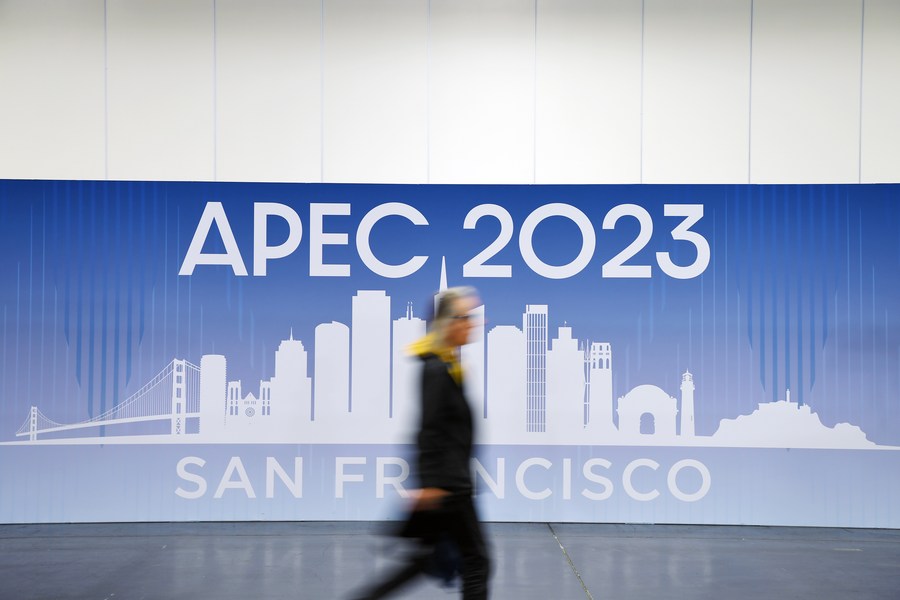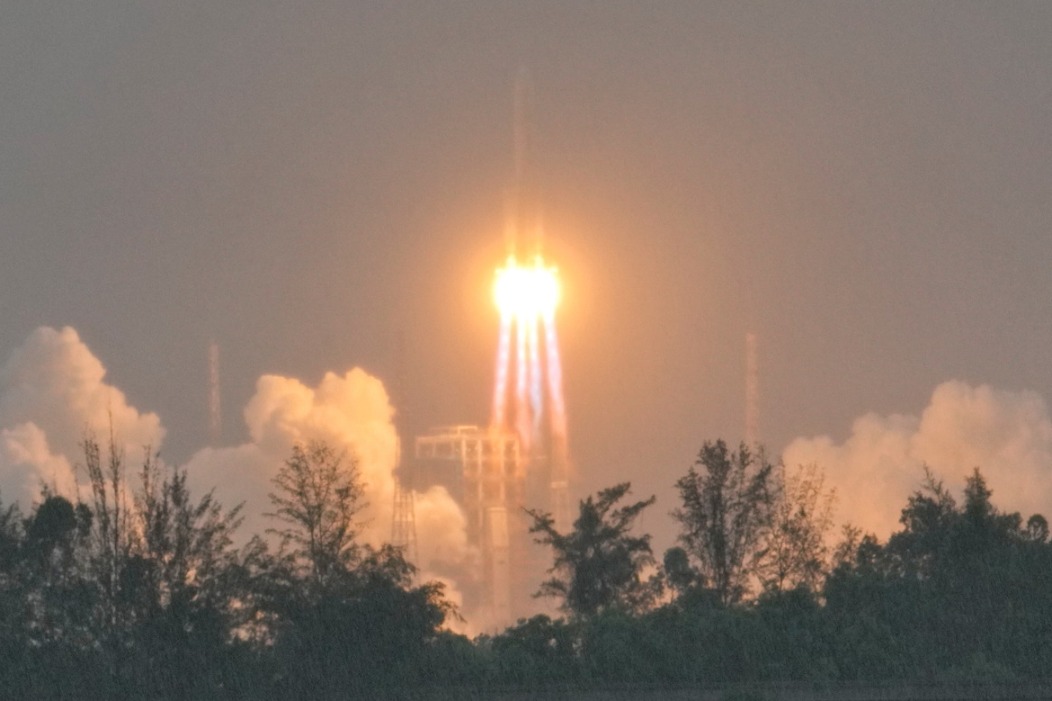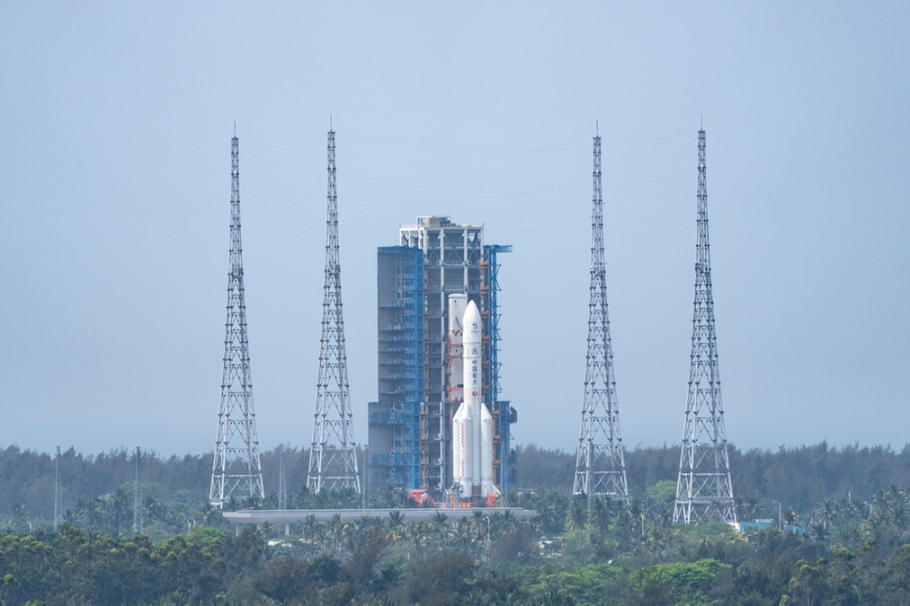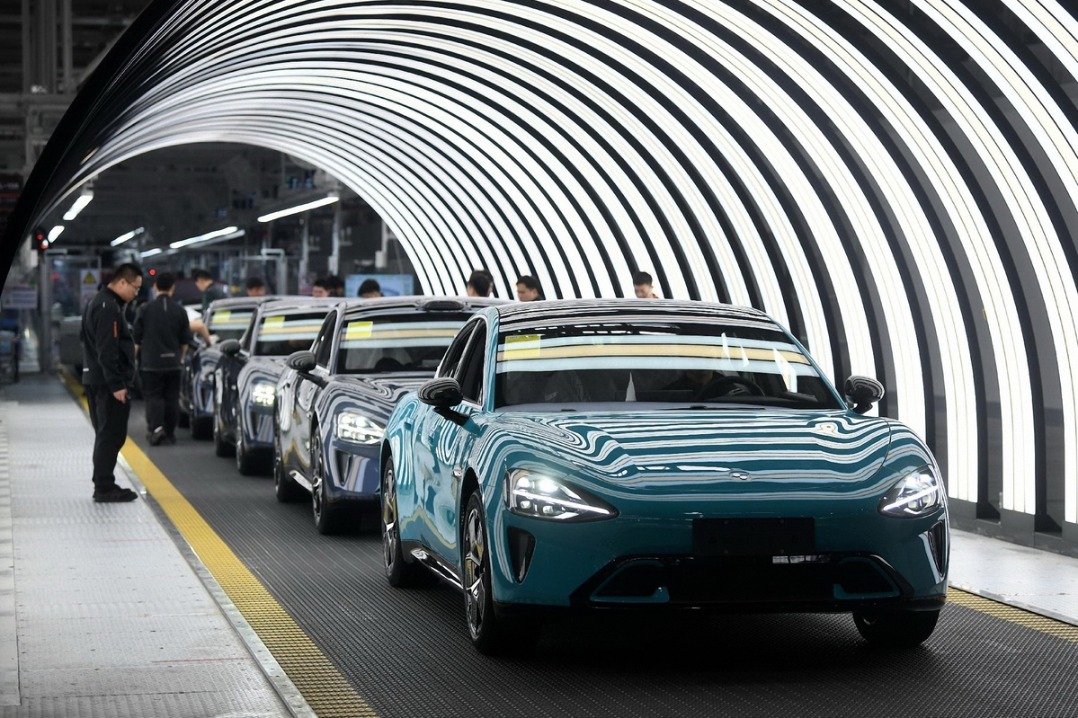Regional cooperation on sustainable development, climate change crucial for APEC
By ZHAO RUINAN | China Daily | Updated: 2023-11-17 10:10

Green and sustainable development has become a focal point in the Asia-Pacific region over the past three decades.
At the ongoing 30th Asia-Pacific Economic Cooperation Economic Leaders' Meeting, being held in San Francisco with the theme of "Creating a Resilient and Sustainable Future for All", green development experts have called for stronger regional cooperation to collectively address crucial issues such as climate change, and ways to achieve sustainable development.
Qin Hu, vice-president and chief representative of the China Representative Office of the Environmental Defense Fund, an international nonprofit organization, said green cooperation is crucial for APEC economies.
"The region faces significant environmental challenges, including air and water pollution, deforestation, and habitat destruction. Cooperation is essential to addressing these issues and collectively protecting the region's ecosystems," he said.
The APEC region accounts for about 60 percent of world energy demand and includes four of the world's five largest energy users. In 2016, APEC economies consumed the equivalent of over 8,043 million metric tons of oil worth of energy, or Mtoe, and were net energy importers of more than 530 Mtoe.
A report by the Asia Pacific Energy Research Centre, titled APEC Energy Demand and Supply Outlook, states that APEC economies' final energy demand will rise by 21 percent above 2016 levels by 2050.
Although this highlights the region's ability to decouple energy demand from economic growth, the report forecasts that more than 80 percent of its primary energy demand in 2050 will likely be met by fossil fuels if APEC economies continue with a "business-as-usual approach".
However, Qin said the region is one of the most vibrant globally for green economic development, and it has made great achievements in promoting green and low-carbon initiatives in recent decades.
One example of this is the rapid growth in the use of renewable energy in the Asia-Pacific region. From 2010 to 2019, the region's installed capacity of renewable energy increased by 2.4 times, from 610.5 gigawatts to 1444.3 GW, a report released by the APEC Energy Working Group said in July last year.
Qin said, "APEC has promoted green transformation and low-carbon development through energy subsidy reforms, established environmental product lists, released its sustainable visions aligned with the UN's 2030 Agenda for Sustainable Development, and created multiple mechanisms focused on the environment."
In 2020, APEC leaders introduced the APEC Putrajaya Vision 2040, which identifies "strong, balanced, secure, sustainable, and inclusive growth" as essential drivers of economic prosperity.
Experts also believe that the meeting between the leaders of China and the United States this week could bring new opportunities for cooperation in green development and climate negotiations.
Rachel Cleetus, a climate expert at the Union of Concerned Scientists, told Agence France-Presse, "The world is in a dire situation, so having the opportunity to find some breakthroughs and areas of collaborative agreement ahead of time will be important."
Thawing in green development
Zhou Weidong, director of the World Business Council for Sustainable Development's China Office in Beijing, raised the hope that China-US relations could "embark on a journey of gradual thawing in the areas of green development and climate negotiations".
"In these areas, the potential for cooperation between the world's two largest economies is huge," he said.
Zhou also believes that the role of private capital is crucial in green cooperation, and that APEC should strive to become a platform for member economies to harmonize their policies and regulations on green transformation.
"It is critical for APEC leaders to sit at the negotiation table and discuss ways to reduce trade barriers and foster consistency in environmental standards. This will facilitate cross-border green investments and trade in sustainable products and services," Zhou said.
He highlighted the efforts of the APEC Green Supply Chain Cooperation Network, which was established in 2015, and boasts a green supply chain center that was set up in Tianjin.
"From production, to transportation, to sales markets, the supply chain is a value chain that extends from China and Southeast Asia to North America, playing a critical role in global economic recovery and sustainable development," Zhou said.
"In promoting the development of green supply chains in the future, APEC economies should strengthen cooperation and collectively drive regional green transformation."
Meanwhile, new avenues for private capital to support green and low-carbon projects are needed, Qin said.
A report from the United Nations Conference on Trade and Development underscored a significant funding gap for renewable energy investment in developing countries. The annual demand is $1.7 trillion, yet only $540 billion was invested in clean energy last year.
In contrast, developed countries receive about 80 percent of their green investments from the private sector, while developing nations receive less than 15 percent, the report said.
Qin said, "It is imperative to attract more private capital to green and low-carbon projects to facilitate the transition in developing nations."
Eventually, regional green development cooperation will drive the development of green industries as a way of promoting regional and global economic recovery after the COVID-19 pandemic, he added.
"Member economies recognize the need for economic opportunities in green industries, creating jobs in the renewable energy and sustainability sectors, and enhancing overall economic resilience," Qin said.
"This underscores the notion that economic growth and sustainability are not mutually exclusive, but rather, interdependent," Qin said.
























